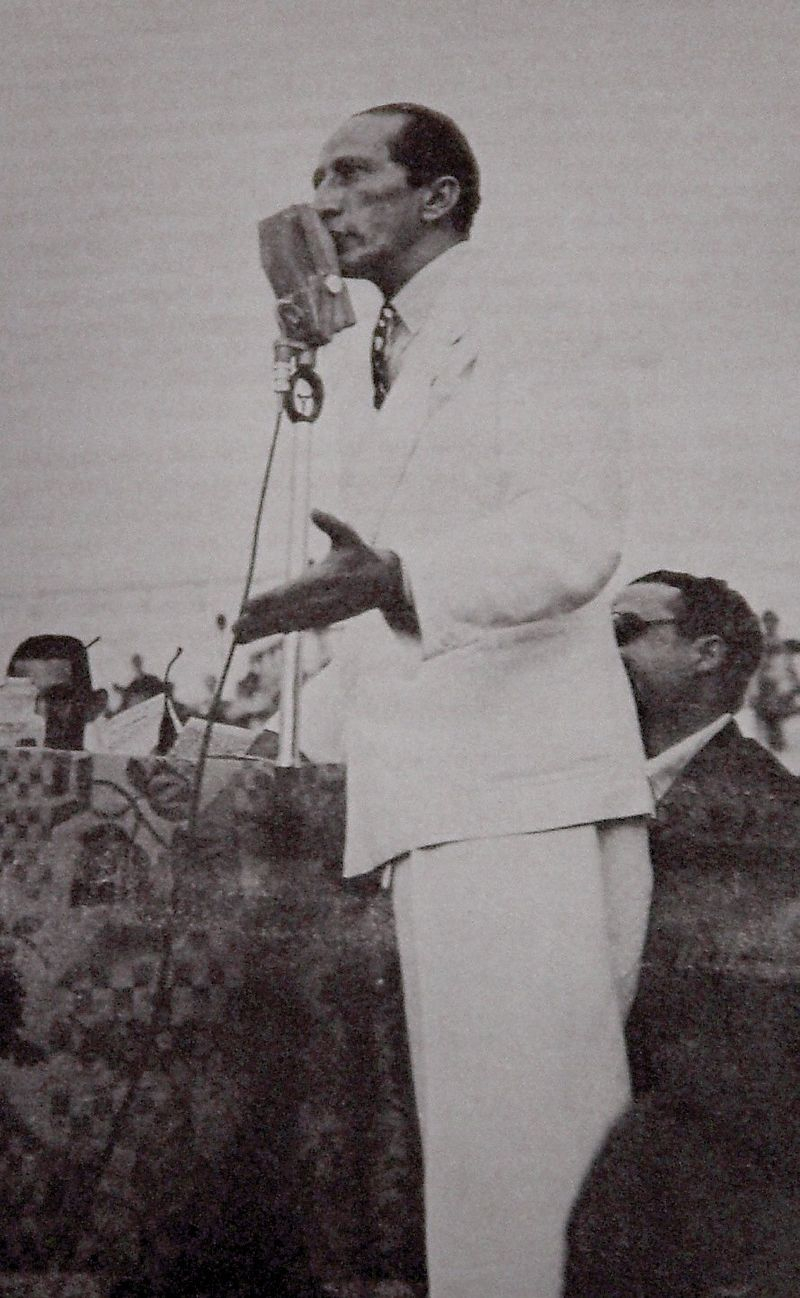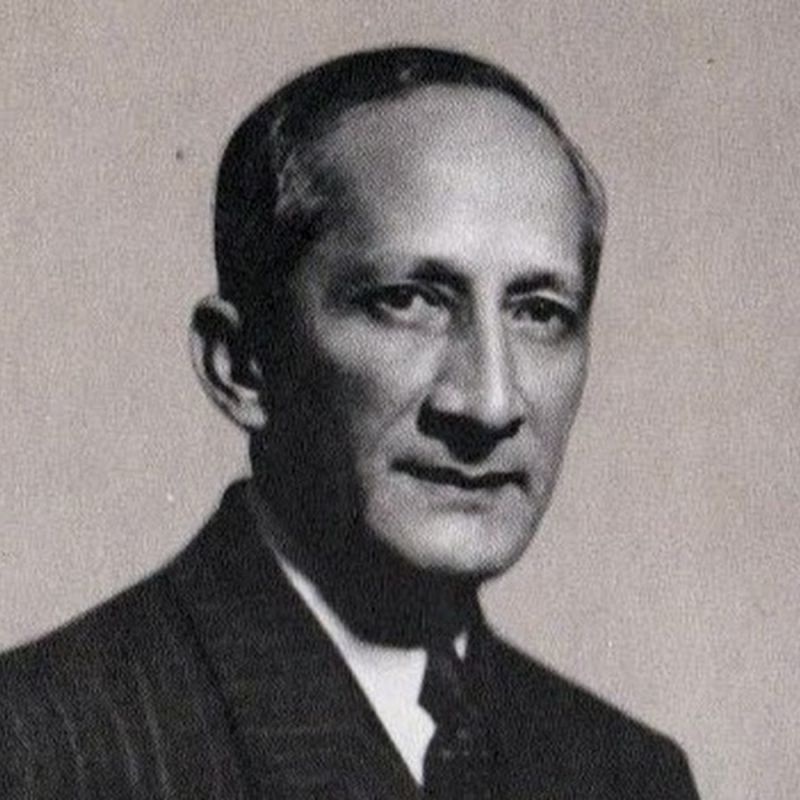Andrés Eloy Blanco
Andrés Eloy Blanco Meaño (August 6, 1896 - May 21, 1955) was a well-known Venezuelan poet and politician. He was a founding member of Acción Democrática (AD) and a member of the Generación del 28. From 15 February 1948 to 24 November 1948, he served as Venezuela's Minister of Foreign Affairs. Now he is regarded as one of the most important historical figures in Venezuela.
He was born on August 6, 1896, in Cumaná, Sucre state, Venezuela. Blanco spent part of his childhood on Margarita Island (Nueva Esparta State), where his family settled. Until he relocated to Caracas to study at Universidad Central de Venezuela.
In 1918, he won his first award for his pastoral poem Canto a la Espiga y al Arado, and he published his first drama play, El Huerto de la Epopeya. He was imprisoned that year for protesting against the government. With the poem Canto a España (A Song to Spain), he won first prize in the Juegos Florales (Floral Games) in Santander, Cantabria, Spain in 1923. He traveled to Spain to accept the award and stayed for over a year.
From 15 February 1948 to 24 November 1948, he served as Venezuela's Minister of Foreign Affairs. Blanco was exiled to Mexico City in 1948, and Pedro Infante sings the song Angelitos Negros in a film based on his poem Pntame Angelitos Negros, which was set to music by Mexican composer Manuel Álvarez Maciste. It's a demonstration against racism.
He died on May 21, 1955, in Mexico City, Mexico. Several Venezuelan municipalities bear his name.







